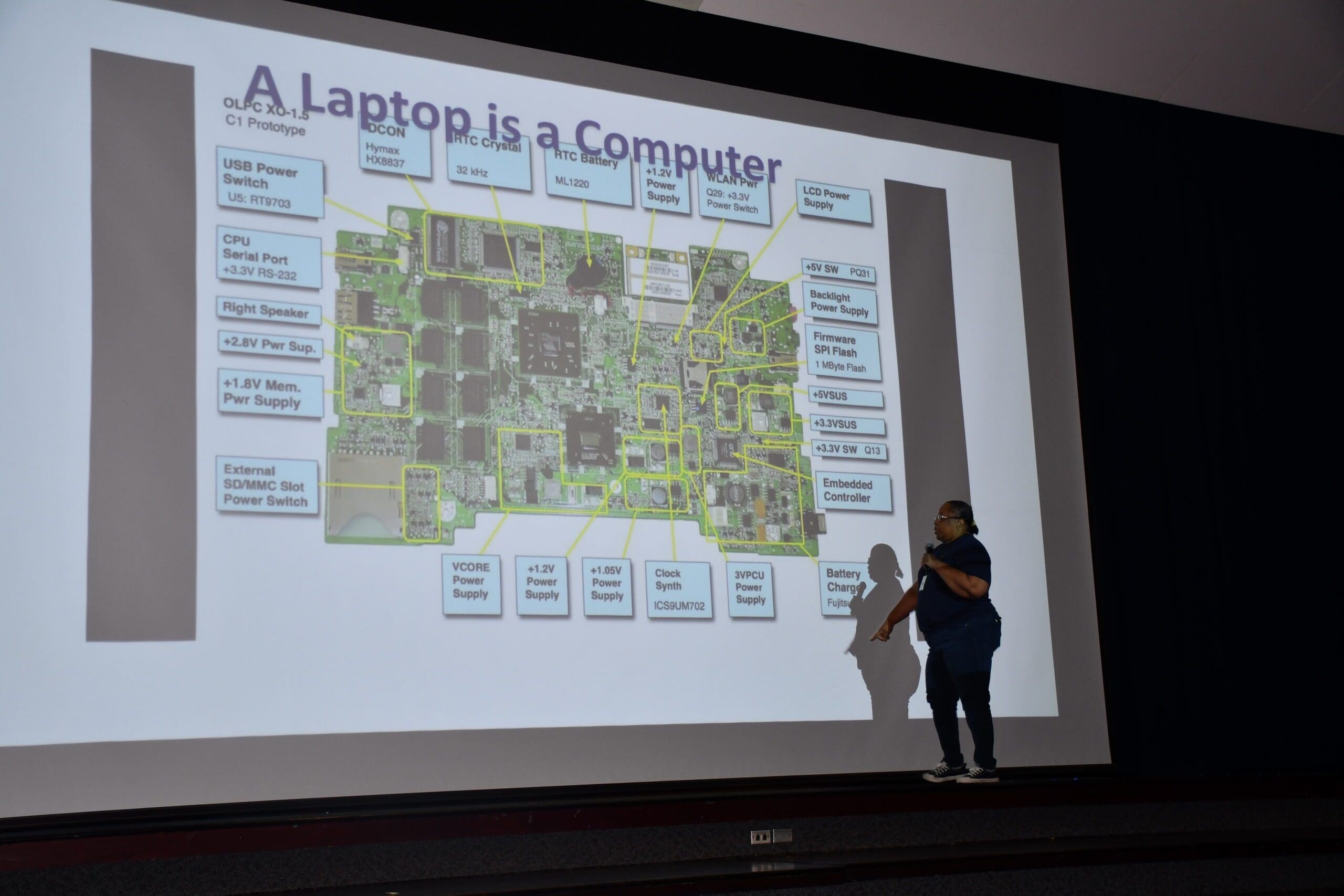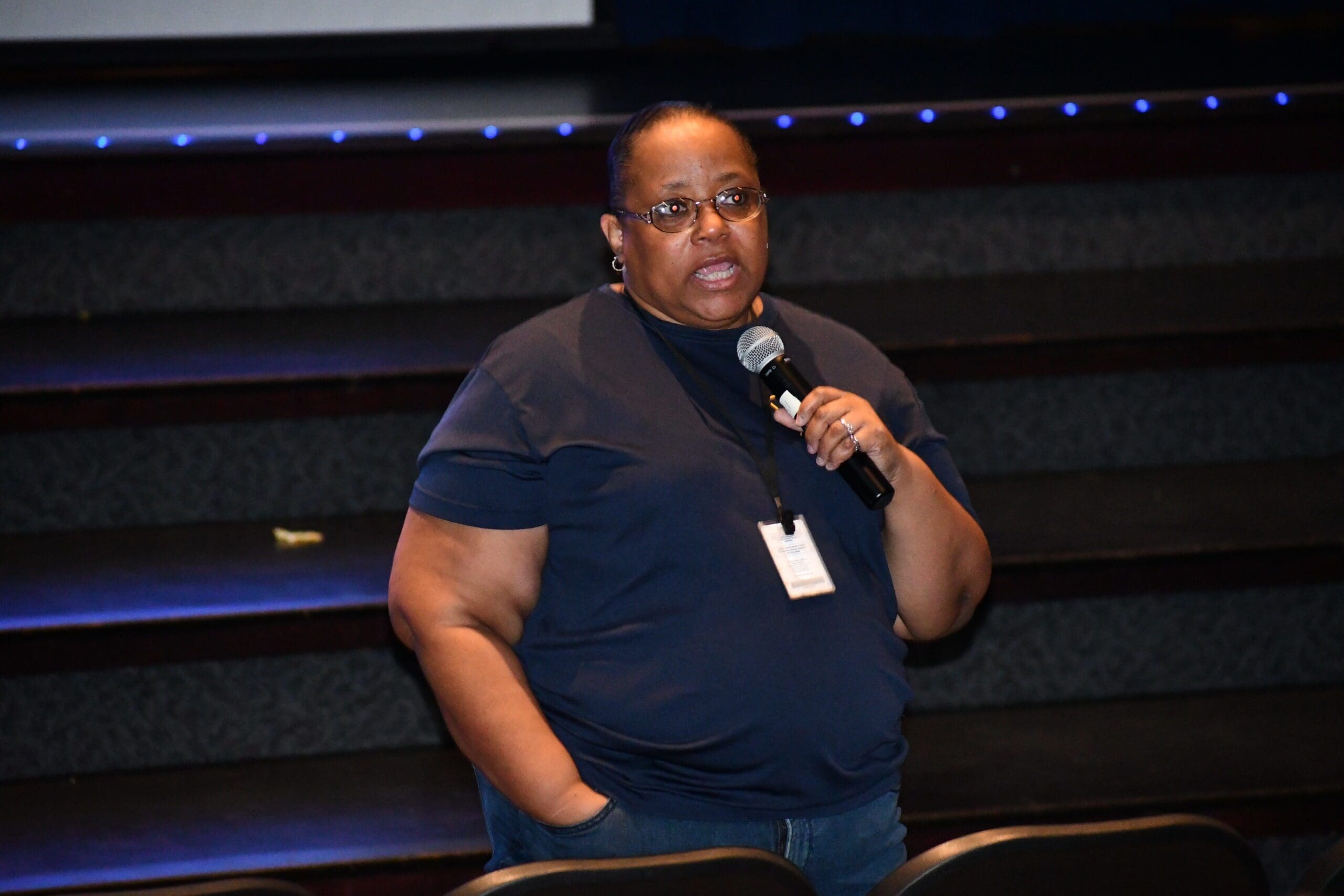Michigan City High School students recently learned about digital safety at a presentation with Cathie Bledsoe of the Indiana State Police.
During the presentation at MCHS, Bledsoe told students, “When I look around this room, I see potential victims, and potential predators.” Bledsoe is part of the Internet Crimes Against Children (ICAC) task force of the Indiana State Police, and was visiting MCHS as part of a proactive approach to discuss digital safety. She is a former computer teacher who now uses her tech knowledge to fight against online solicitation, human trafficking, and other crimes targeting children.
To demonstrate how easily a predator can receive electronic information, Bledsoe said she started using a tracking program as soon as her presentation began. She announced that she could track a T-Mobile phone, a Nokia phone, Apple watches, earbuds, and an insulin monitor – all in the MCHS auditorium at the time. She could pinpoint the longitude and latitude of any device, even if the Bluetooth connection was turned off.
“Information is coming from your device and talking to other devices,” she said. “Your computers were not designed to be private. They were designed to collect information, process information, share information, and instantly send that information. Computer geeks like me have access to everything you do.”
Bledsoe said that some predators are committing felonies without even realizing it. She said that a person can be classified as a trafficker just by sharing pictures. She added that a person as young as 10 can be charged as an adult for committing a felony in the State of Indiana, and the youngest age a person can register as a sex offender in the state is 14.
“Your generation is the first generation that has no privacy. You put your whole world on computers,” she said. “With three cameras and a microphone – your phone collects information when you don’t even realize that it is sharing your information around the world. Everything you say, everywhere you go is recorded. Learn to protect yourself so you can have a bright future.”
The presentation was coordinated by the Jobs for America’s Graduates (JAG) program at Michigan City High School. Ray Davis, who oversees the JAG program at MCHS, said he felt this was an important lesson for high school students to help them become better digital citizens.
“They are glued to their phones, and some use them for negative things,” he said. “They need to understand the responsibility that comes with using this technology, and hopefully the students that were here will share this information with their friends and we can make a bigger impact.”


